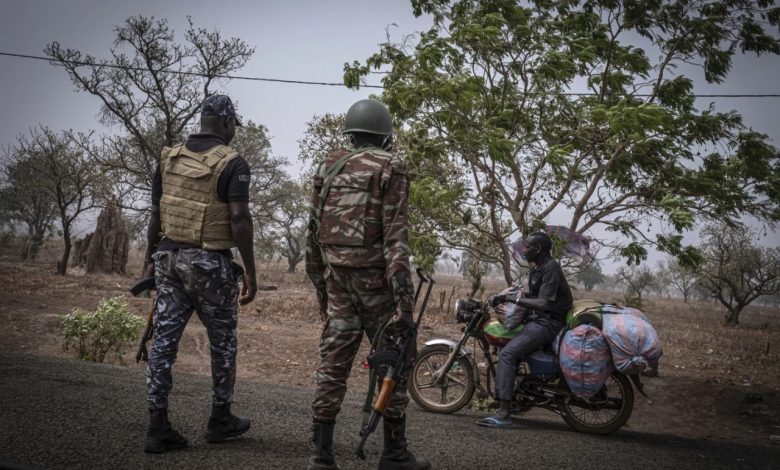Jihadis from Africa’s Sahel Have Crossed into Nigeria’s North

AP
Jihadi fighters who had long operated in Africa’s volatile Sahel region have settled in northwestern Nigeria after crossing from neighboring Benin, a report said Wednesday, the latest trend in the militants’ movements to wealthier West African coastal nations.
The extremists believed to be linked to al-Qaida have in the last year crossed over from Benin’s hard-hit northern region and settled in Kainji Lake National Park, one of Nigeria’s largest, where other armed groups have also gained access, according to the report by the Clingendael Institute think tank, which has done extensive research in the Sahel.
Residents close to the park told The Associated Press that the facility, which holds one of West Africa’s fast-declining lion populations, has been closed for more than a year because of security threats from armed groups attacking neighboring villages and roads.
“Before, it was like a tourism center (but) now, people find it difficult to pass through there,” said John Yerima, who lives near the park in New Bussa town. “You cannot enter that road (leading to the park) now. It is dangerous, seriously.”
The security situation at the 5,300-square kilometer (2,000-square mile) park in Niger state and along the nearby border with Benin is “getting out of hand” and is “a much more explosive situation than we had anticipated,” said Kars de Bruijne, one of the authors of the report and a senior research fellow at the institute.
The “sustained presence” of the armed groups in the park is the first sign of a connection between Nigeria’s homegrown extremists that have launched a decadelong insurgency in its northern region, and al-Qaida-linked militants from the Sahel, the vast arid expanse south of the Sahara Desert, Bruijne said.
Their presence offers an opportunity for the extremists to claim large-scale success in both countries, already wracked by deadly attacks in recent years, he added.
There are also concerns from conservationists that the presence of armed groups in the park could further threaten the remaining lions whose populations have declined as a result of poaching and climate change. They say the park and most protected wildlife areas in Nigeria are poorly patrolled, making them easy targets for armed groups.
“The security situation has become top of the list when it comes to the concerns about the lion populations in Nigeria,” said Stella Egbe, senior conservation manager at the Nigerian Conservation Foundation.
The Nigerian military often conducts aerial bombardments and deploys its personnel in criminal hideouts in the conflict-battered northern region. However, security forces — fatigued by the decadelong war in the northeast — are still outnumbered and outgunned in those remote villages, and the root causes of the conflict such as poverty remain.
The Clingendael report said it is unclear what the motive of the Sahel extremists in the park is and what their relationship with other armed groups there will be. Security analysts say it offers opportunities for logistics and more influence amid booming illegal trade across the porous border.



